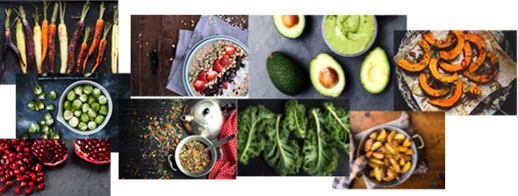Our health experts share the best immune-boosting foods, from green tea to avocado, to add to your diet to fight colds and the flu.
Winter foods for cold and flu prevention
Winter is cold and flu season where it can become challenging to stay healthy while everyone around you is getting sick. One of the best ways to safeguard your health is by getting your yearly flu shot. However, prevention doesn’t stop there—your diet can also help give your immune system a boost.
Our health experts share the best immune-boosting foods to add to your diet for cold and flu prevention. Also, check out the 15 flu myths doctors wish you’d stop believing.

Root vegetables
Vitamin C may help shorten the duration of colds and improve symptoms, making it an essential nutrient for cold-weather months, explains registered dietitian Michele Gilson, RD, of Kaiser Permanente in Colorado. Yes, oranges are a good source, says Gilson, but so are root vegetables, which makes them a smart addition to soups and stews. Focus on beets, turnips, parsnips, and carrots, among many others.
Green tea
Gilson says green tea is an ideal hot beverage choice for the winter season. It delivers minerals and vitamins that help build your immune system. “It has more health benefits than other caffeinated teas because of the way it’s processed: The leaves are dried and lightly steamed, not fermented like other black teas,” she explains. “The tea has catechins—a type of antioxidant—that can help ward off viruses.”
Oatmeal
Push those Cheerios aside and make room for oatmeal, a healthier meal choice in winter, according to Gilson. “There is a load of zinc and soluble fibre in there. Zinc helps the immune system and the fibre helps keep you feeling warm and fuller for longer,” she explains. Maybe skip the butter and brown sugar, and instead top your bowl with dried fruit or fresh fruit—it’ll be even better for you.
Brussels sprouts
Time to start experimenting with lesser-known greens: Many of these vegetables heal and help your body in immeasurable ways. Maybe give Brussels sprouts another chance. They’re delicious when topped with turkey sausage or paired with spices, and these all-powerful veggies will help you ward off illness, according to Brittany Stucklen, RD, a registered dietitian at Medifast Weight Control Centres of California. Not only do Brussels sprouts feature antioxidants that help get rid of the sniffles, but they also promote strong bones.
Butternut squash
Take advantage of butternut squash as the snow pours down and the thermometer continues to drop. Stucklen says this vegetable will deliver the nutrients your body is craving this time of year: Vitamin A, potassium, and fibre. “Adding butternut squash to your winter diet decreases the risk of obesity, diabetes, and heart disease,” she explains.
Kale
Looking for a fresh alternative to soup? Stucklen has an option: Kale salad. It will give you the health benefits of dark leafy greens you usually get from a salad. “Kale is rich in vitamins A, C, K, and E, and is filled with iron, calcium, manganese, and potassium. Use it in any dish or make it for your lunch break,” Stucklen recommends.
Pomegranates
This winter fruit has a short shelf life and can be tough to peel, Stucklen says, but it’s worth the extra effort. Not only do the fruit’s potent antioxidants and anti-inflammatories keep you from contracting a cold, but they can protect your heart as well by helping lower blood pressure and cholesterol. Pop the seeds for lunch or on top of your oatmeal or salad.
Potatoes
Your body craves warmth this time of year, which is why Lynn Anderson, PhD in natural health and a Doctor of Naturopathy with an emphasis in aromatherapy, suggests selecting heat-producing foods like potatoes and yams. They may aid your circulation system. A 2017 review published in the journal Nutrients suggests eating vegetables, such as potatoes, can be considered candidates for cardiovascular disease prevention and treatment. The researchers believe their cardioprotective effects include anti-inflammation, lowering blood pressure, regulating blood sugar levels along with other biomarkers associated with cardiovascular disease risk.
Pumpkin
This squash should be added to your diet beyond Halloween and Thanksgiving pies. Maya Feller, RD, a registered dietitian and nutritionist in Brooklyn, New York, explains that pumpkin is loaded with beta-carotene and is a wonderful source of fibre, which can help prevent mindless snacking during the long nights near your kitchen. It’s also rich in vitamin A, which can strengthen your immune system and even help fight infections, according to a study published in Current Opinion and Immunology.
Avocado
A requirement for guacamole, a best friend to toast, and a beloved go-to for nearly every health nut, avocados are a smart choice year-round, Feller explains. They deliver healthy monounsaturated fats and contain a variety of vitamins and minerals all of which can protect your heart and help boost your immunity.
By Lindsay Tigar
